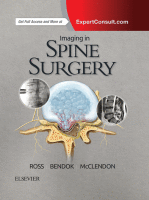Physical Address
304 North Cardinal St.
Dorchester Center, MA 02124

KEY FACTS Terminology Fracture or avulsion of vertebral ring apophysis following injury in immature skeleton You’re Reading a Preview Become a Clinical Tree membership for Full access and enjoy Unlimited articles Become membership If you are a member. Log in…

KEY FACTS You’re Reading a Preview Become a Clinical Tree membership for Full access and enjoy Unlimited articles Become membership If you are a member. Log in here

KEY FACTS Terminology Comminuted fracture through C2 vertebral body Displacement of fragments in AP direction You’re Reading a Preview Become a Clinical Tree membership for Full access and enjoy Unlimited articles Become membership If you are a member. Log in…

KEY FACTS Terminology Type I: Avulsion fracture from tip of odontoid at insertion of alar ligament Usually stable injury Usually seen in conjunction with more extensive craniocervical injury Type II: Transverse fracture through base of odontoid Most likely to progress…

KEY FACTS Imaging Abnormal rotatory motion of C1 with respect to C2 defined by 3-position CT scan Top Differential Diagnoses Etiologies of atlantoaxial rotatory fixation (AARF) Trauma Nasopharyngeal infection (Grisel syndrome) Prior head and neck surgery Pathology Pang type I…

KEY FACTS Terminology Fracture(s) of C1 ring Imaging Multiple fractures of C1 arch (2-, 3-, and 4-part fractures) Combined offset of lateral masses of C1 relative to lateral margins of C2 ≥ 7 mm suggests interruption of transverse ligament Avulsion…

KEY FACTS Terminology Bony disruption of occipital condyle You’re Reading a Preview Become a Clinical Tree membership for Full access and enjoy Unlimited articles Become membership If you are a member. Log in here

KEY FACTS You’re Reading a Preview Become a Clinical Tree membership for Full access and enjoy Unlimited articles Become membership If you are a member. Log in here

KEY FACTS Terminology Disruption of stabilizing ligaments between occiput and C1 Imaging Widened prevertebral soft tissues (nonspecific) Condylar sum > 4.2 mm has 100% sensitivity, 69% specificity, and 76% accuracy Increased basion-dens interval (BDI) distance > 8.5 mm (CT in…

Craniocervical Junction Occipital condyle fractures are classified into 3 types. Type I = comminuted fractures due to axial loading; stable if contralateral side is intact Type II = occipital condyle fracture with skull base fractures; most of these are stable…